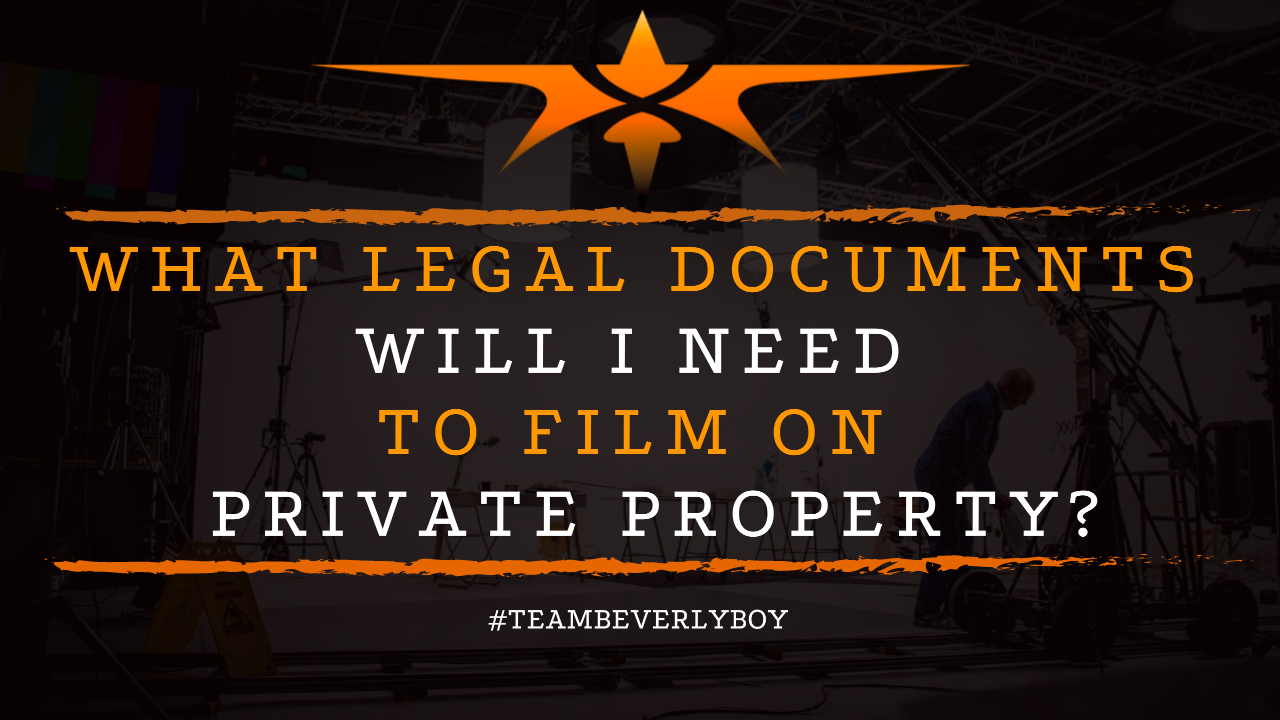
What Legal Documents will I Need to Film on Private Property?
No matter where you go, film laws and regulations are going to vary. By city, by state, and by individual property. In the most black and white setting. And in which you are filming on private property owned by someone. The law is simple and states that you must seek permission. Both to be on the property and to film on the property, from the property owner. However, if you’re considering a production shoot on private property, you might be wondering. What legal documents will I need to film on private property?

To help you understand what is expected from you, the filmmaker. And to provide you with the most resourceful list of legal documents that you should include if you intend to film on private property. Let’s first address the question, “What is private property?”
What is Private Property?
Private property is most likely inclusive of many more properties than what you think. For starters, someone’s home or the property the home is built on is considered private property.
But what about places like the park? Or the nearby shopping mall? A restaurant, a gas station, a parking lot or hospital?
As you probably know, many of these properties are often considered “public” at first thought. But are they public property or private property, technically?
By definition, private property is that which is owned not by the local city or state government but by a private owner. Therefore, many of the places that you visit in public are technically actually considered private property.
So, let’s take a look again at the various examples listed previously and determine whether they are public or private property:
- Parks – Typically considered public property as most parks are city property however some are privately owned.
- Shopping malls – Generally privately owned and operated and are thus private property.
- Restaurants – Again, generally privately owned and operated and are private property.
- Gas Stations – Are privately owned and are considered private property.
- Parking Lots – Are often privately owned by the property owner, but depending on the location could be considered public. This is a grey area.
- Hospitals – Are technically private property as they are privately owned and operated.
Before you film anywhere, whether on private property or on public property, you must determine ownership and then you can begin the process of determining where or from whom to seek permission to film on the property.
Legal Documents for Filming on Private Property
If you know you’ll be filming on private property, you might be wondering, “What legal documents will I need to film on private property?” Technically, the legal documents that you’ll want to focus most on if filming on private property are release forms.
You’ll want to make sure that you have a written location release or consent form from the property owner which grants you permission to be on the property as well as permission to film on the property.
Additionally, you should have individual talent release forms available and signed by anyone that you film on the property.
Maintaining permission, and the appropriate legal release forms discussed above when filming on private property will prevent you from facing any potential legal repercussions resulting from filming on private property without taking these steps.



